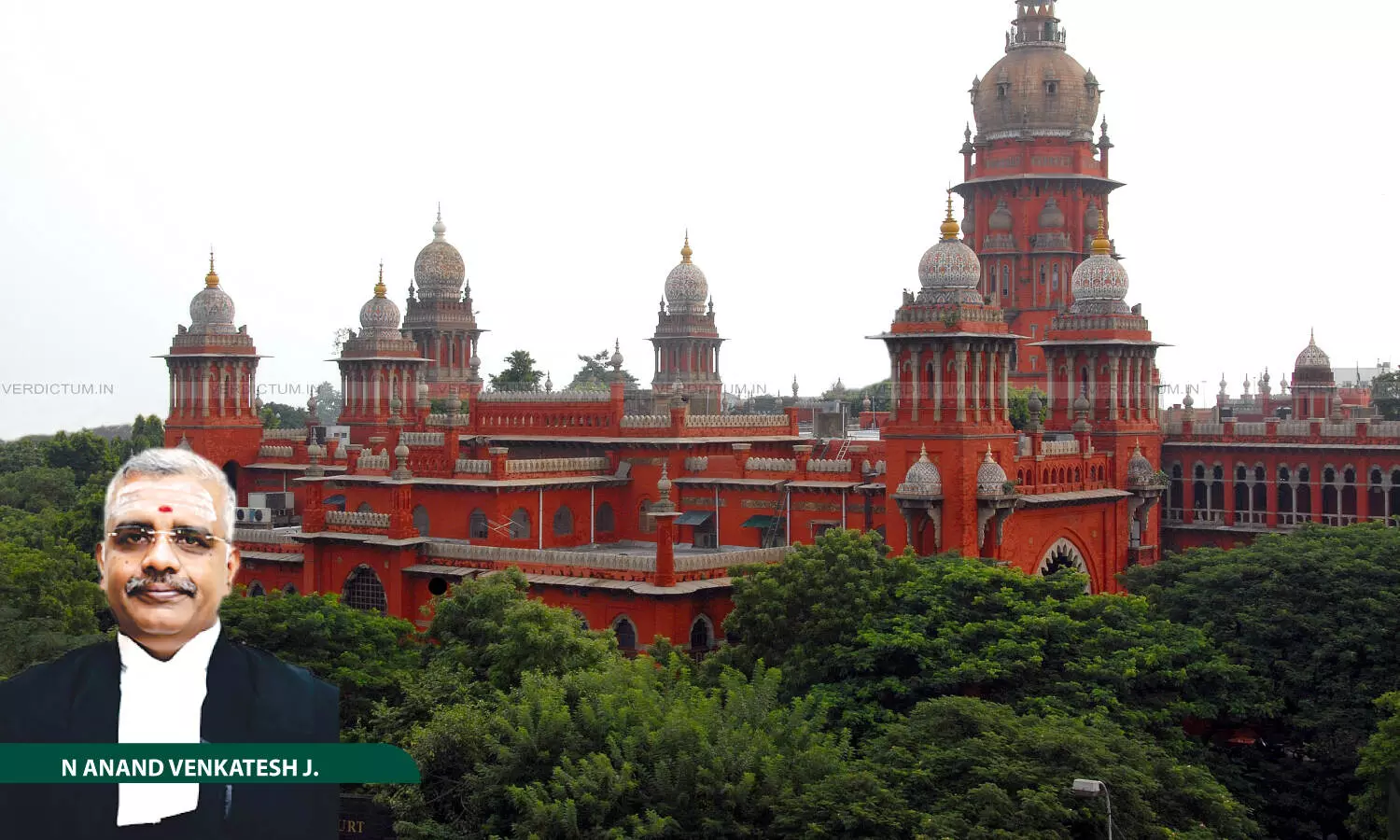
Censor Board Must Exhibit Broadmindedness: Madras High Court Directs Filmmakers of Manushi to Modify Scenes
 |
|The Court emphasised that certification authorities must adopt a liberal and balanced approach to preserve artistic expression while also upholding statutory obligations under the Cinematograph Act, 1952.
The Madras High Court has observed that the Central Board of Film Certification (CBFC) and its committees must demonstrate broadmindedness when dealing with matters involving artistic freedom and creative expression. While recognising the importance of protecting constitutional rights under Article 19(1)(a), the Court clarified that such freedoms are subject to reasonable restrictions under Article 19(2) and the Cinematograph Act, 1952.
The Court was hearing a writ petition filed by the producer of a Tamil feature film challenging the CBFC’s directives, which required several cuts and modifications before granting certification. The petitioner argued that the Board’s objections were arbitrary and disproportionate, contending that they infringed on the right to free expression and undermined artistic integrity.
The CBFC, however, defended its decision, stating that the recommended changes were based on statutory guidelines and necessary to ensure compliance with standards of public order, decency, and morality.
A Bench comprising Justice N. Anand Venkatesh, while adjudicating the matter, remarked: “The aforesaid exercise has been done keeping in mind the principles of proportionality thereby ensuring that artistic freedom is not unduly curtailed on surmises and conjectures. Ultimately the Court must balance two competing interests, the fundamental right under Article 19(1)(a) and the legitimate state interest in censorship. The Censor Board and its committees must nevertheless exhibit a sense of broadmindedness when it comes to matters of artistic freedom…”
Background
The matter arose after the CBFC issued a directive requiring certain modifications and excisions in the petitioner’s film before granting certification for public exhibition. According to the petitioner, the Board’s objections exceeded the statutory framework and constituted excessive interference with artistic choices. It was contended that the recommended cuts targeted dialogues and scenes central to the film’s creative intent, thereby violating the filmmaker’s fundamental right to freedom of speech and expression.
On the other hand, the CBFC maintained that the modifications were strictly in line with the guidelines framed under the Cinematograph Act, 1952, which empower the certification authority to ensure that films comply with standards relating to decency, morality, national security, and public sentiment. The Board argued that its recommendations were necessary to avoid potential social unrest and public misinterpretation.
This led the petitioner to approach the Madras High Court seeking to set aside the directives and direct the CBFC to grant certification without implementing the recommended changes.
Court’s Observations
The Madras High Court examined the governing approach under the Cinematograph Act, 1952 and the certification guidelines. It reiterated that certification is a regime of regulation, not prohibition, and that the Central Board of Film Certification is obliged to act within the statute while being sensitive to creative expression. The Court underscored that the certification authority and its committees “must nevertheless exhibit a sense of broadmindedness when it comes to matters of artistic freedom,” and that any interference with a filmmaker’s choices must be narrowly tailored to the statutory touchstones.
The Court also examined the record to identify the precise objections raised and the portions of the film to which the CBFC had directed attention. It tested each objection against the Act and the guidelines, focusing on whether the impugned content transgressed the permissible boundaries relating, inter alia, to decency, morality, or public order, and whether less intrusive measures could secure compliance without diluting the core of the expression.
To assess context and cumulative effect, the Bench watched the film. Viewing the work in its entirety, rather than by isolated lines or frames, the Court evaluated how the challenged dialogues and scenes operated within the narrative arc, the tone and treatment employed by the filmmaker, and the likely impact on viewers.
The Court then refined the directions to ensure that only those portions that genuinely attracted the statutory restraints would be modified. Wherever feasible, it preferred limited excisions, muting, or substitutions in place of broader deletions, so that compliance with the Act and guidelines could be achieved without unnecessary impairment of the work. The result of this exercise was set out item by item in a consolidated table of modifications and excisions.
It is worth noting that while taking up the matter for adjudication, the Court observed that its jurisdiction under Article 226 of the Constitution was discretionary and could be exercised where the recommendations or decisions of the certification authority resulted in arbitrariness, non-application of mind, or misinterpretation of the statutory guidelines.
The Bench emphasised that in matters involving certification, while deference is owed to the expert body, the High Court retains the power to examine whether the statutory mandates have been complied with and whether the restrictions imposed align with the constitutional guarantees under Article 19(1)(a) and the permissible limitations under Article 19(2)
Conclusion
Having settled the specific alterations, the Court then directed the petitioner to carry out the modifications and excisions “set out by the Bench, within a period of 2 weeks. It further directed that, upon the filmmaker resubmitting the film with those changes, the 1st respondent shall issue an appropriate certificate under the Cinematograph Act, 1952, within a period of 2 weeks thereafter.
The Court accordingly disposed of the writ petition on these terms, with no order as to costs, and closed all connected miscellaneous petitions.
Cause Title: Vetri Maaran v. Central Board of Film Certification & Ors.